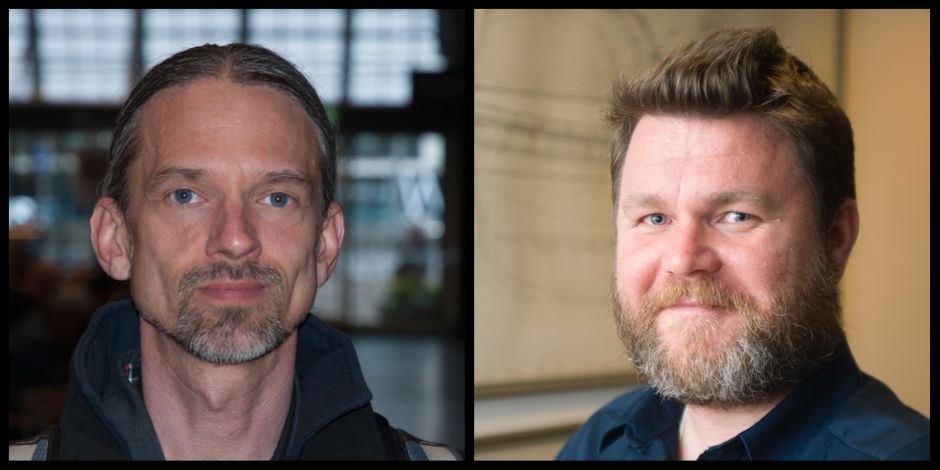Focus on dialogue when world's leading researchers in ship stability gathers in Stockholm

Faster vessels that load more cargo, that use less fuel, that affect the environment as little as possible and at the same time must be safe. These are some of the challenges within shipping that researchers in ship stability are concentrating on. And for the first time, Sweden will host the International Ship Stability Workshop, ISSW. The workshop is arranged by Chalmers University of Technology and KTH Royal Institute of Technology with Lighthouse as co-organisers.
- It's great to be able to invite the world's best researchers and give the Swedish maritime sector the opportunity to get a close contact with the ongoing research, says Anders Rosén, professor at the Royal Institute of Technology, KTH.
- To be selected to host the workshop is a recognition of the Swedish research in ship stability, says Martin Schreuder, lecturer at Chalmers University of Technology in Gothenburg.
Anders Rosén, KTH, and Martin Schreuder, Chalmers, stands behind the fifteenth edition of ISSW, the International Ship Stability Workshop, which since 1995 has been an annual event where the latest research findings on ship stability are presented and discussed.
Industry are welcome
About 60 researchers will participate and the workshop is also valuable to others who are active in shipping, such as shipping companies, consulting firms, ship's officers and agencies such as the Swedish Transport Agency, the Swedish Defence Materiel Administration and the Swedish Maritime Administration.
- The most important thing is to stimulate meetings between researchers and exchange ideas. We want to have shorter presentations within the same topics and then have plenty of time for discussions, between the writers and with the audience. We want to try to create an informal dialogue, Anders Rosén says.
Wide range of topics
The workshop lasts three days in June, and the eight sessions cover everything from damage stability of passenger ships to the validation of statistical methods.
- Damage stability of passenger ships - how does one ensure that ships are robust after a damage occurred.
- Right now there is a revision of the rules for how passenger ships should be designed to cope with damage from collisions. It is largely about transferring the results of model tests and advanced simulation models to methods that are more manageable during the design work for new ships, Martin Schreuder says.
- Roll Damping - how to damp a ship's rolling motion. Important for both the safety of the ship as for comfort on board.
- Second generation intact stability criteria - how to ensure that an intact, functioning ship is stable. Ongoing work within the International Maritime Organization, IMO.
- Operational aspects on ship stability, dynamics and safety - how do you give the crew the best conditions possible to operate the ship in a safe and efficient manner.
- We are moving towards a development where guidelines and on board systems are constructed at an early design stage, so that when you hand over the ship to the crew, they have much greater technological ability to obtain assistance in interpreting the prevailing sea state in relation to vessel characteristics and make good decisions. This is a hot issue, among others, in the IMO, Anders Rosén says.
- Novel approaches to ship stability
- A challenge is to take advantage of the ever increasing computing capacity, to develop advanced simulation models and use these in the analysis, design and even the operation of ships, says Anders Rosén.
- Computational and stochastic methods - the waves are typical stochastic and how do you model that kind of irregularity. And how do we analyse a ship's response as a stochastic process.
- Stability of naval vessels - for example, extreme hull shapes and high speeds involve completely different aspects of ship stability.
- Validation of numerical methods - how to ensure that numerical, mathematical models match reality.
The workshop takes place June 13-15 in Stockholm. More information and registration here: http://www.shipstab.org/issw2016
Text: Andreas Kron
-
 Ny studie: Eldrivna pendelbåtar kan effektivisera Stockholms kollektivtrafik
Ny studie: Eldrivna pendelbåtar kan effektivisera Stockholms kollektivtrafik -
 Sjöfartens utsläpp ökar
Sjöfartens utsläpp ökar -
 Sociala relationer påverkar val av bränsle
Sociala relationer påverkar val av bränsle -
 Sjöfartens omställning kräver ”mjukare” påtryckningar
Sjöfartens omställning kräver ”mjukare” påtryckningar -
 Hon hade avtalad tid med Kapten ynkrygg
Hon hade avtalad tid med Kapten ynkrygg -
 Lighthouse omvärldsanalys 2025 – osäkerhet och tullar präglar sjöfarten
Lighthouse omvärldsanalys 2025 – osäkerhet och tullar präglar sjöfarten -
 Se seminariet Shipping in the Marine Environment
Se seminariet Shipping in the Marine Environment -
 Vad betyder egentligen de 90 procenten?
Vad betyder egentligen de 90 procenten? -
 Hålla där...
Hålla där... -
 Ny rapport: Klimatförändringarna ett hot mot de flesta större hamnar i världen
Ny rapport: Klimatförändringarna ett hot mot de flesta större hamnar i världen

